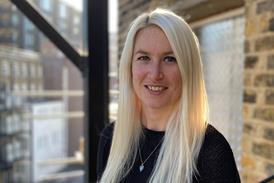- Home
 City of London to appoint architect to design firearms training facility for City police
City of London to appoint architect to design firearms training facility for City police Carmody Groarke gives preview of its revamped Manchester museum ahead of summer reopening
Carmody Groarke gives preview of its revamped Manchester museum ahead of summer reopening TP Bennett’s rethink on Canada Water scheme set to be approved next week
TP Bennett’s rethink on Canada Water scheme set to be approved next week What’s stopping us from better understanding our emissions?
What’s stopping us from better understanding our emissions?
- Intelligence for Architects
- Subscribe
- Jobs
- Events

2025 events calendar Explore now 
Keep up to date
Find out more
- Programmes
- CPD
- More from navigation items
RIBA staff ‘too afraid to speak up’ about bullying

Review says institute needs to “encourage conversations” on institutional racism
Some staff at RIBA feel unable to speak up about issues at the institute, including race-related microaggressions, a review by independent diversity consultancy EW Group has found.
The report, commissioned after the professional body for architects was accused of burying a 2021 investigation into bullying by HR adviser Sue Baker, also found that some of the organisation’s roughly 250 staff felt RIBA treated its equality, diversity and inclusion responsibilities as a “tick box exercise”.
RIBA chief executive Valerie Vaughan-Dick said there was no place in the organisation for “anything but a positive working culture” for staff, members and everyone they interact with.
…
This content is available to registered users | Already registered?Login here
You are not currently logged in.
To continue reading this story, sign up for free guest access
Existing Subscriber? LOGIN
REGISTER for free access on selected stories and sign up for email alerts. You get:
- Up to the minute architecture news from around the UK
- Breaking, daily and weekly e-newsletters
Subscribe to Building Design and you will benefit from:

- Unlimited news
- Reviews of the latest buildings from all corners of the world
- Technical studies
- Full access to all our online archives
- PLUS you will receive a digital copy of WA100 worth over £45
Subscribe now for unlimited access.


